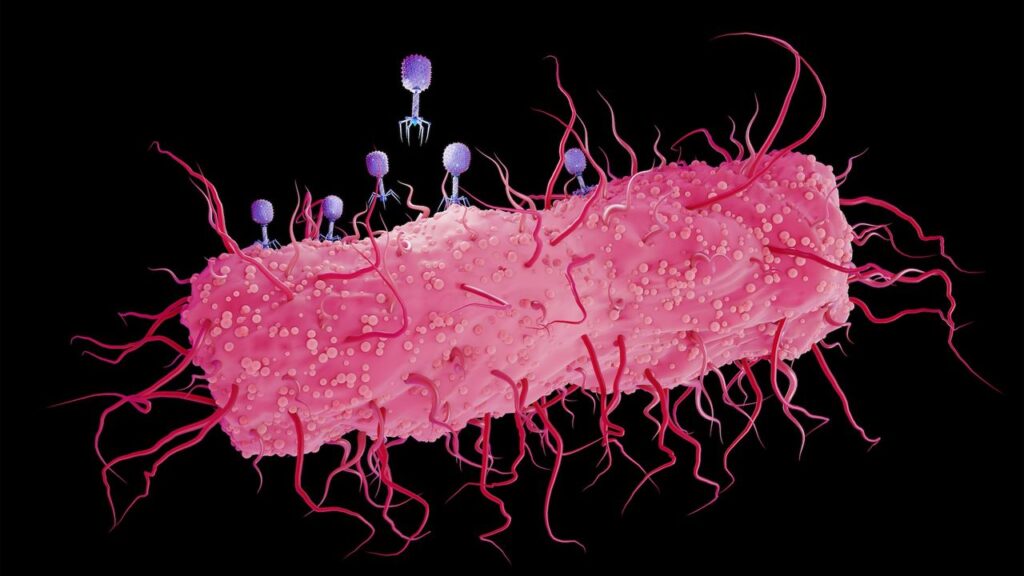
T4 bacteriophages infecting E. coli bacterium, illustration. Phages are viruses that infect and replicate within bacteria.
BREAKING NEWS: A landmark experiment conducted in 1943 by physicist Max Delbrück and biologist Salvador Luria has confirmed that mutations in bacteria arise spontaneously, a fundamental principle supporting Darwinian evolution. This pivotal research, conducted at Indiana University and Vanderbilt University, directly challenges the long-held belief that mutations occur only in response to environmental pressures.
The duo’s groundbreaking findings, published in a paper detailing the “fluctuation test,” reveal that bacteria such as Escherichia coli can develop resistance to viruses spontaneously, rather than solely as a reaction to external threats. This revelation has significant implications for our understanding of evolution and genetic variation.
Delbrück and Luria’s work arose during a time when Darwin’s theories were widely accepted for plants and animals, but skepticism lingered regarding bacterial genetics. Their innovative approach utilized bacteriophages—viruses that infect bacteria—to explore whether these organisms could develop resistance.
In the early 1940s, Delbrück, who fled Nazi Germany, became fascinated by the intersection of physics and biology. He encountered a researcher studying a new strain of E. coli and was captivated by how easily individual virus particles could be observed and quantified.
After teaming up with Luria, who had also escaped the Nazis, they devised a method to test the random nature of mutations. By exposing multiple cultures of E. coli to phages, they aimed to determine whether mutations appeared consistently across cultures or varied widely. Their results showed that mutations occurred randomly, leading to what is now known as the fluctuation test.
UPDATE: This experiment not only solidified the foundation of Darwinian evolution but also set the stage for future research in genetics. Delbrück, Luria, and their collaborator Alfred Hershey later discovered that phages could exchange genetic information, earning them the 1969 Nobel Prize in Physiology or Medicine for their groundbreaking contributions.
Today, modern research continues to explore the complexity of mutation rates, indicating that not all mutations are entirely random. Studies suggest that essential genes may mutate at lower rates than those less critical.
This significant development in understanding genetic variability highlights the ongoing evolution of scientific knowledge. As researchers uncover new layers to the mechanisms of evolution, the implications extend beyond theoretical discussions to practical applications in medicine, agriculture, and biotechnology.
Stay tuned as this story develops. The implications of Luria and Delbrück’s findings are still being felt today, reshaping our understanding of genetics and evolution. The scientific community eagerly anticipates further revelations that could emerge from this rich area of research.
For those passionate about the intersection of science and history, this discovery opens a window to the past while propelling us into the future of genetic research. Share this urgent news to keep the conversation going!






